|
Scripture Readings: Jeremiah 1:4–10 | Psalm 71:1–6 | 1 Corinthians 13:1–13 | Luke 4:21–30
“They got up, drove him out of the town, and led him to the brow of the hill on which their town was built, so that they might hurl him off the cliff. But he passed through the midst of them and went on his way.” (Luke 4:29-30). Whose side are you on? Last week we looked at this passage from the Gospel of Luke, where Jesus begins His mission to share the Good News of God’s Kingdom in His own hometown… only to have His family and neighbours turn on Him in rage, run Him out of town, and try to throw Him off a cliff. One moment they’re listening to Him eagerly, amazed by His gracious words… the next, they’re ready to violently end His life. What a way to start God’s rescue mission… caught up in life-or-death clashes and conflict right from the get go. And despite the life-giving nature of Christ’s mission and His message, these clashes and conflicts would continue in various ways all throughout His ministry. Clearly, something about what Christ came to do causes controversy… it challenges those who encounter Him, often in uncomfortable ways. Of course, these days it seems like conflict and controversy are everywhere… calling for us to pick our sides in countless, unending divisions. All over the news this week, for instance, we hear all sorts of people speculating about whether or not Russia is going to send armed troops into Ukraine… and if a major military conflict is on the horizon. We’re also hearing about the convoy of transport trucks arriving in Ottawa to protest and try to overturn vaccination mandates. These are just two examples from recent days, but the list goes on and on… and over these last two years, as our whole world goes through this time of massive change and anxiety, where so many of us are feeling exhausted, and frustrated, and frightened… it feels like we’re constantly being called into another fight. Sometimes with strangers we’ve never met, and likely never will. Sometimes with those closest to us… neighbours, friends, and family. Like lots of folks, I hate conflict. From as long as I can remember I have tried to be a peace maker… and to avoid choosing sides if at all possible. But sometimes we do need to choose… to take a stand one way or another. As tempting as it may sound to try to remove and protect ourselves from every storm our society faces… to keep our heads down, and our mouths shut… the Church is called not to hide it’s light, but to see that it shines. The question for us as Christians is not how can we avoid all conflicts… but what are the choices that God is asking us to make as we follow Him? What does it mean for us to choose to be on God’s side? And the answer is usually not nearly as obvious as we might like to think. This morning we heard about Jeremiah, and how the Living God set Him aside from birth for a challenging mission: to speak God’s words to a stubborn people who did not want to listen. And Jeremiah wasn’t exactly eager to take part in this mission. “Ah, Lord God!” he says, “Truly I do not know how to speak, for I am only a boy.” God’s only reassurance is that no matter the challenges and difficulties he would have to face, God Himself would be with him. Eventually, if we read on in Jeremiah, we’ll learn precisely how hard this calling would turn out to be… surrounded by his neighbours who hated everything he said and did. Alone, eventually arrested and thrown into a pit. Jeremiah’s life ended up being a constant struggle and source of conflict, calling God’s unfaithful people to turn back to the LORD with all their hearts… knowing full well he would never see his people actually listen. Imagine being Jeremiah: called as a kid to take on this seemingly hopeless mission. But as hopeless as it must have seemed to him at the time, Jeremiah’s life was not wasted… it played a huge role in the Good News of God’s great rescue mission, for not only Jeremiah’s neighbours, but for the whole world. In many ways, Jeremiah’s life points forwards in time to the life of Jesus, and His mission… Christ’s whole life was dedicated to bringing God’s word to His people… embodying the heart of God to them, even though most would reject it. We spoke last week about how His message of God’s Good News was first received with joy by His hometown, then turned quickly to violence when Jesus pointed out that God’s compassion and love was not just for them… that the Living God would not fall into the traps of our human polemics and prejudice… that the LORD of all creation was not simply on their side… and that it was up to them to respond faithfully and choose to be on His side! That was a particular stand that almost got Jesus thrown off of a cliff. Standing with God, choosing to be faithful to His ways will not be easy… but it is the way of life. True life. Eternal life. And what it looks like is love. Not the self-seeking kind of love… the holy love that St. Paul speaks of. Christ shows us that God’s holy love “is patient; love is kind; love is not envious or boastful or arrogant or rude. It does not insist on its own way; it is not irritable or resentful; it does not rejoice in wrongdoing, but rejoices in the truth. It bears all things, believes all things, hopes all things, endures all things. Love never ends.” (1 Corinthians 13:4-8) This love, the holy love of God is not a feeling, it’s a choice. A stand. A way of life we need to actively and intentionally pursue, again and again. Especially when it seems like no one around us is listening. Especially, when like Jeremiah, and Jesus, we seem alone… with only the promise that God is with us, and His love will see us through. This love is not necessarily going to solve geopolitical tensions, or find a way to make our neighbours and loved ones with opposing political and ethical commitments come together. But it IS the calling of the Church of Jesus Christ, who gave His life on the cross as the full embodiment of God’s holy love for everyone. Including those who betrayed Him, abandoned Him, and crucified Him. There will always be something to fight over, and people calling us to choose sides. But as Christians we’re already committed to God’s side, made known in Jesus Christ. The side of holy love, which is patient, kind, not envious or boastful, or arrogant or rude. “It does not insist on its own way; it is not irritable or resentful; it does not rejoice in wrongdoing, but rejoices in the truth. It bears all things, believes all things, hopes all things, endures all things. Love never ends.” We are called to live this way each day precisely so that the Good News of Jesus Christ, and God’s re-creation and reconciliation that is at work through Him might take root and bear it’s transforming, healing, and life-giving fruit in our world through the Holy Spirit of God at work in us. Like Jeremiah, we may not see others change their minds on account of our message. We might feel alone, but that will not stop the Spirit from being with us and constantly working through us. Like Jesus our Lord, if we take our stand on the holy love of God, we too might be rejected by our neighbours and run right out of town… but that will not stop our Saviour’s rescue mission for our world that He has drawn us into and calls us all to share with everyone. Will we at St. Luke’s choose the more excellent way of God’s self-giving love? Will our lives be a sign to our polarized world that in Jesus, God Himself is on the side of His divided creation… eager to reconcile us all to Himself through His own blood? By the grace of the Living God, Father, Son, and Holy Spirit, may it be so. Amen.
0 Comments
The Parish of Gondola Point will be having our Annual Meeting on Sunday February 20, 2022. More details will be coming soon for Parishioners about how to participate in this important meeting. If you have any questions, please feel free to contact Rev. Rob or the Wardens. Our service of Morning Prayer, Bulletin, and Sermon this week can be found here: And our Songs this week can be found here: Ancient Story, New Beginnings - Sermon for the Third Sunday After Epiphany - January 23, 20211/22/2022 Scripture Readings: Nehemiah 8:1–3, 5–6, 8–10 | Psalm 19 | 1 Corinthians 12:12–31 | Luke 4:14–21
“Then he began to say to them, ‘Today this scripture has been fulfilled in your hearing.’” (Luke 4:21). When God’s word is spoken, get ready for New Creation. That’s what happens in both our Old Testament reading today from the book of Nehemiah, and our reading from the Gospel of Luke: the people are gathered together to listen to the Holy Scriptures, and what they hear challenges and shakes up the whole story of their lives. In our reading from Nehemiah, we’re witnesses of the rebirth of a nation. Many years after the kingdom of Judah had fallen to the Babylonians, and its people were carried away into Exile, some of them had returned, and had been trying to put back the shattered pieces that had once been their homeland. Nehemiah was a Jewish Exile in the service of the King of Persia (which had by that time taken over Babylon). Nehemiah had heard a report from his homeland that all was not well: “The survivors there in the province who escaped captivity are in great trouble and shame; the wall of Jerusalem is broken down, and its gates have been destroyed by fire.” (Nehemiah 1:3). Wrecked by this news, Nehemiah prays to the LORD and seeks forgiveness for the failures of his people… pleading with the Living God to show them His mercy and holy love. Eventually, and surprisingly, Nehemiah ends up returning to Jerusalem with a commission from the King of Persia to rebuild the city, and much of the book of Nehemiah tells of this ongoing drama. But what happens after the walls are rebuilt is where we pick up the story today: now it is the people of God’s turn to be rebuilt. After decades of living far from home, surrounded by strangers and foreign ways of life, they were gathered to hear again the sacred story of their people: the Torah, the Law of Moses was read aloud, and the people wept… broken down by the realization that they and their ancestors had failed. They had not stayed true to the Covenant that the LORD God had made with them, and so they had lost their Temple, their country, their world, and had gone off into Exile. The scholar Timothy Saleska puts it like this: “The story of the life and death of Israel is not just a history lesson to these people. It is their story —their life and their death. The story of God’s infinite love and their own pitiful rebellion brings them to their knees.”[1] But now, it was time for a new beginning. Nehemiah, and Ezra the priest, and the Levites urge all the people: ‘do not weep, rejoice!’ This day was a holy day to the LORD, a day for celebration and song. Yes, the Law had exposed the people’s collective darkness, but not to condemn them… it was so that they may now start to walk in the light! God had given His people a new beginning, brought about by His mercy and faithful love bringing them through the pain of Exile and back into the Promised Land. We follow this pattern ourselves each week in our services, when we confess together, acknowledging our failures to follow in God’s holy ways… and together in Christ we are invited to return to the LORD with all our hearts, and rejoice in His forgiveness and grace… not so we can keep on walking in darkness, but so that we can walk with Him in the light… so that we can grow in His grace, and respond to His faithful love by making real changes. Rededicated… rebuilt as God’s people once again. What followed after the public gathering to hear their sacred story in Nehemiah was a renewed sense of their purpose, and identity… pursuing a new way forward as God’s forgiven, and now faithful people. It wasn’t easy, and it was far from perfect, but they were beginning again. Their sorrow had been transformed by the hope of finding their place in God’s story. Turning now to the New Testament, St. Luke offers us a different picture of a new beginning. Today we heard how Jesus, filled with the Holy Spirit, begins His mission: He reads from the Holy Scriptures in His hometown synagogue. This is His moment to reveal to us all what He is all about… and what His Heavenly Father has sent Him to accomplish. He reads from the prophet Isaiah: “The Spirit of the Lord is upon me, because he has anointed me to preach good news to the poor. He has sent me to proclaim release to the captives and recovering of sight to the blind, to set at liberty those who are oppressed, - to proclaim the acceptable year of the Lord.” (Luke 4:18-19). Words of hope for the hopeless… a new beginning for all. This message was more than welcome that day among those gathered in Nazareth… among those eager to be set free from the oppression of Rome, from the rule of foreign nations they had been living under for centuries, eagerly awaiting the arrival of God’s Kingdom. And this message still hits home with many of us today as well: especially those of us who are struggling to find healing and help and hope. We too are longing to be set free… to find freedom and peace. We too are hungry for new beginnings… for Good News to come to us too. And reading aloud the promises the Living God made to His people long ago, Jesus points to Himself as their embodiment: “Then he began to say to them,” (and to us, I would add) “‘Today this scripture has been fulfilled in your hearing.’” (Luke 4:21). If we end the story here, as our lectionary would have us do, it all sounds wonderful. But unlike the story of Nehemiah, where God’s people are told to rejoice instead of weep at the word of the LORD, Jesus words continue, and turn the excitement and welcome of His hometown synagogue, into outcries of rage. Luke 4:22-30. “All spoke well of him and were amazed at the gracious words that came from his mouth. They said, “Is not this Joseph’s son?” He said to them, “Doubtless you will quote to me this proverb, ‘Doctor, cure yourself!’ And you will say, ‘Do here also in your hometown the things that we have heard you did at Capernaum.’” After His opening claim to be the bringer of God’s Good News, Jesus highlights the people’s lack of faith in Him… turning the focus now from the message, to how they receive the Messenger. Just like God’s people in Isaiah’s day had rejected and turned their back on their God, leading them into Exile, Jesus was predicting that His own people would also reject Him as well. But as off-putting as this accusation was (however accurate it would turn out to be), this was not what really set the people of Nazareth off that day. Jesus goes on to completely challenge their understanding, not just of who He is and what He’s about, but who the Living God is, and what God is up to. Luke 4:24-30, And he said, “Truly I tell you, no prophet is accepted in the prophet’s hometown. But the truth is, there were many widows in Israel in the time of Elijah, when the heaven was shut up three years and six months, and there was a severe famine over all the land; yet Elijah was sent to none of them except to a widow at Zarephath in Sidon. There were also many lepers in Israel in the time of the prophet Elisha, and none of them was cleansed except Naaman the Syrian.” When they heard this, all in the synagogue were filled with rage. They got up, drove him out of the town, and led him to the brow of the hill on which their town was built, so that they might hurl him off the cliff. But he passed through the midst of them and went on his way.” Sidon and Syria were two of Israel’s neighbours, and in days gone by, were often their enemies… warring against God’s people. They represented “those other people” that Israel thought God wanted nothing to do with… those who worshipped idols, oppressed God’s people, and had no future in God’s Kingdom. But Jesus points back to key moments in the story of Israel where the LORD was at work offering mercy to “those other people” too…. rescuing them, and drawing them into the story of His holy love… while at the same time, God’s own people kept on rejecting His ways and turning their backs, again and again, on their covenant promises. N. T. Wright helpfully highlights why the tension and anger was building: “Jesus points out what happened in the days of the great prophets Elijah and Elisha, and in doing so identifies himself with the prophets. Elijah was sent to help a widow —but not a Jewish one. Elisha healed one solitary leper —and the leper was the commander of the enemy army. That’s what did it. That’s what drove them to fury. Israel’s God was rescuing the wrong people.”[2] That day in the synagogue, Jesus makes clear that God’s own people had missed the point of their own story: that God was not only concerned with rescuing the children of Israel… He was calling them to be faithful to Him with all of their heart, and walk with Him in the light… so that God’s mercy, forgiveness, and holy love would extend to every nation… to all the world. “The servant-Messiah” Wright goes on to say, “has not come to inflict punishment on the nations, but to bring God’s love and mercy to them. And that will be the fulfilment of a central theme in Israel’s own scriptures. This message was, and remains, shocking. Jesus’ claim to be reaching out with healing to all people, though itself a vital Jewish idea, was not what most first-century Jews wanted or expected.” [3] From the beginning, St. Luke tells us that Jesus proclaimed the Good News that God wants all peoples to come and share in God’s good Kingdom. And from the beginning, He knew that His own people would reject Him and this message, just as God’s people had all too often rejected their LORD. But even so, that would not change the Good News He was sent to bring: God’s new beginning, not just for the children of Israel… but for all. As we gather to hear God’s word, do we expect to find new creation at work? To have our foundations rocked in order to be rebuilt again? To find our darkness exposed, and then to be called into the light? Do we listen with joy only when the message lines up with our own expectations, and stop our ears and close our hearts when we find ourselves and our views challenged? Through the Holy Scriptures, God’s Spirit is still at work re-creating His people, preparing us to take part in the work of Christ’s Kingdom here and now. To share in the new beginning of God’s rescuing love in Jesus, for all. May the Lord open our hearts to hear and receive His word to us today. And may the Holy Spirit continue to re-create us in Christ always. Amen. [1] Timothy E. Saleska, “Third Sunday after the Epiphany, Year C,” in The Lectionary Commentary: Theological Exegesis for Sunday’s Texts, Volume One (Grand Rapids, MI: Eerdmans, 2001), 255. [2] Tom Wright, Luke for Everyone (London: Society for Promoting Christian Knowledge, 2004), 47–48. [3] Tom Wright, Luke for Everyone (London: Society for Promoting Christian Knowledge, 2004), 48–49. Our service today highlights the spiritual practice of reading the Holy Scriptures aloud together. Here is a great video from the Bible Project that explores this practice as well: Our Service of Morning Prayer, Bulletin, and Sermon can be found here: And our Songs can be found here: Scripture Readings: Isaiah 62:1–5 | Psalm 36:5–10 | 1 Corinthians 12:1–11 | John 2:1–11
“Jesus did this, the first of his signs, in Cana of Galilee, and revealed his glory; and his disciples believed in him” (John 2:11). In this season after Epiphany, our readings regularly invite us to reflect on some of the key moments where Christ’s mission is revealed: reminding us of who He is and what He has come to do. In today’s reading we heard tell of the now famous miracle at the wedding in Cana, where Jesus creates wonderful wine out of water… saving the nuptial party from turning into a social disaster. Of all the wonderful miracles that Jesus performed, why is this one singled out as being so significant? What does it tell us about the bigger story Christ is playing out? Is it just a gracious wedding gift to a desperate couple in need? A unique opportunity to perform a random act of kindness? A display of miraculous power to wow the crowd and help build up a following? The Gospel of John tells us this event was much more than a kind gesture… John calls it “the first of his signs”… and signs point to something… they have a message that is meant to be understood. But who is this sign meant for? Far from a dramatic display of power, this miracle is done in secret. Sure, the benefits are shared by all the guests, but only a few know who is behind it all. This sign is first of all meant to say something to His disciples… including you and I, about what Jesus has come to do. And what He is calling us to take part in… revealing a glimpse of His glory as the One who has come to make all things new. Of course, the image of a wedding runs all through the story of Scripture… especially when it comes to God’s relationship with Israel: a community set apart to be God’s own covenant people… committed to sharing their life with the LORD in joyful celebration. As we’ve looked at before, the covenant ceremony at Mt. Sinai, where God gives the Law to the newly rescued Israelites through Moses, was almost to be like a ‘marriage’ celebration, a new beginning. But disastrously, the people went back on their vows almost immediately… building an idol to worship, and throwing a raucous party for themselves. What was meant to be a wonderful, holy event became a shameful tragedy… one which was replayed, throughout their history again and again. This faithless path leads, first the Northern Tribes of Israel, and then the Southern Kingdom of Judah, into destruction and exile… cast out from the Promised Land that God had prepared for them. But as tragic as their future seemed, and as hopeless as they may have felt, through the prophets the LORD God reminds His people that He will be true to His word. That His judgment on their sin isn’t meant for their destruction, but to cleanse them… to restore them to His side… to rescue them, even from themselves… so that they can actually, finally share in His New Life. In our reading from Isaiah this morning we hear this hopeful message: “You shall be a crown of beauty in the hand of the Lord, and a royal diadem in the hand of your God. You shall no more be termed “Forsaken”, and your land shall no more be termed “Desolate”; but you shall be called “My Delight Is in Her”, and your land “Married”; for the Lord delights in you, and your land shall be married. For as a young man marries a young woman, so shall your builder marry you, and as the bridegroom rejoices over the bride, so shall your God rejoice over you.” (Isaiah 62:3-5) The LORD Himself promised to turn His tragic ‘marriage’ to His people into joy… renewing their life together to share completely in His holy love. Again, we hear this hope of joy-filled life with God expressed in our Psalm this morning: “How priceless is your love, O God! your people take refuge under the shadow of your wings. They feast upon the abundance of your house; you give them drink from the river of your delights. For with you is the well of life, and in your light we see light. (Psalm 35:7-9). No matter how hopeless or tragic the story of God’s people turned out to be, the truth is the LORD their God would be faithful to them and rescue them. The desolate would be embraced. The forsaken would share God’s delight. Israel was told to trust in the steadfast love of the LORD, who would cleanse His people, and be reconciled again with them forever. Let’s turn back now to John’s Gospel, and the wedding incident in Cana. Here also we find what was to be a joyful celebration turn sour: Not because of any infidelity between the couple, but because of the heartbreaking consequence of not having enough… of not being able to provide enough wine to match the special celebration, which would have been experienced as a great source of shame by those hosting the party. Not just public embarrassment, but outright humiliation… lowering the family’s status in the eyes of the wider community. How often do we find ourselves feeling the same way? Running on empty, while others are depending on us? Feeling like we have let our loved ones down instead of offering joy? The truth is, there are many ways we can find ourselves feeling desolate. Sometimes it’s because of our own choices. Sometimes it’s because of the failures of others that we depended on. Sometimes life just play out in ways we did not expect, or could not have controlled… and still we find ourselves experiencing shame, emptiness, desolate… without hope. For times like these, God gives us a sign: we’re offered a glimpse of the glory of Jesus Christ today… not a random generous act, or a magical remedy to take away all our troubles, but a sign to point us to the One who has come to make all things new… to transform even the worst tragedies through His life-giving, saving love. Jesus tells the servants to take the water set aside to be used for purification, water used to make people clean, and turns it into the most splendid wine… bringing delight beyond all expectations. Purity, holiness surprisingly leading into joy. Shame turned into honour. Desperate emptiness turned into abundant celebration. From the very beginning, Jesus was bringing about God’s promised restoration… not simply of wedding celebrations, but of God’s relationship with His people… and beyond. This sign reminds us that the LORD longs to delight with humanity… to share His everlasting life and all it’s joys with us. And though on our own, we’ve fallen short… God’s re-creating love is never limited by what we can, or cannot, bring to the table. From first to last, Christ has come to bring… to give to us God’s New Life. And this sign points us ahead to the cross: to the ultimate act of Christ’s mission of rescuing mercy… enduring the most shame-filled, and tragic death to cleanse His people and all nations of the earth from all our sins… to bring full reconciliation between us and the LORD through offering up His own blood; dying to set us free. Yet on the third day, God turned all that tragedy and shame into unending joy by raising Christ again from the grave; God’s New Creation bursting into being in the Risen Lord, who will come again in full glory to reunite Heaven and Earth… setting all things right again, and making all things new. As we are facing our own tragedies… our own moments of desolation, whatever they may be… let us look to Jesus our Risen Lord, and seek a glimpse of His re-creative glory. Let us “do what He says”, as Mary told the servants at the wedding, and find that we too are somehow taking part in His gracious, rescuing work. And let us “believe in Him”, as the first disciples did, responding even to the hidden work of His holy love with the faith to follow Him each day, and the certain, joyful hope that God has saved the best for last. Amen. Our Service of Morning Prayer, Bulletin, and Sermon can be found here: And our Songs can be found here: Scripture Readings: Isaiah 43:1–7 | Psalm 29 | Acts 8:14–17 | Luke 3:15–22
"Now when all the people were baptized, and when Jesus also had been baptized and was praying, the heaven was opened, and the Holy Spirit descended upon him in bodily form like a dove. And a voice came from heaven, “You are my Son, the Beloved; with you I am well pleased" (Luke 3:21-22). Today we celebrate the Baptism of the Lord, a moment that marks not only the beginning of Jesus Christ’s earthly ministry, but one that also invites us to share in His ministry too. Baptism is one of the central sacraments, the sacred mysteries of the Church, passed down to us through long generations back to Jesus Christ Himself, who called His disciples to go to every nation on earth and make more disciples, baptizing them in the Name of the Father, the Son, and the Holy Spirit, and teaching them to obey everything that He had commanded them… the way of life He had revealed to them to share with the world. Many of us have been baptized longer than we can remember, but as I have shared with many of you before, I can remember my baptism well. I grew up in the Church, and have believed in God as long as I can remember. The Church I attended as a young person did not practice infant baptism, and I was 15 years old when I was baptized: standing in front of the congregation, many of them my relatives, and publicly owning my faith before being submerged in a tank full of water. Although most of us think of baptisms as occasions for celebration, to my 15 year old self I saw my baptism as a big problem. As I’ve shared before, the feeling that stands out the most to me about that day is fear… fear of failure, fear of angering God… fear of not being good enough. In my mind, I thought if I sinned before being baptized, I still had a chance to find forgiveness… but if I sinned after being baptised… if I kept messing up after dedicating my life to God, then I would be blowing my last chance with Him. And this thought had me terrified. I had my share of struggles, sins and temptations, and though I tried my best to fight them, or at very least to hide them, and doubted that I could ever measure up in the eyes of the LORD. That day over 20 years ago, I felt like I was facing the end. And in some ways, this was true: Baptism is a kind of end. A death to an old life bound to brokenness, sin, and despair. But more importantly baptism is about what happens after this end! It’s about New Creation, the New Life of the Living God. The Holy Scriptures open in Genesis Chapter 1 with a powerful image of God’s creative impulse at work: “In the beginning when God created the heavens and the earth, the earth was a formless void and darkness covered the face of the deep, while a wind from God swept over the face of the waters.” The NRSV translation uses the phrase “wind from God” here, but the word wind is the same word for breath, and also spirit. In ancient Hebrew, these meanings are not easily separated, and are best held closely together if we want to actually get the message. In the beginning we’re told God’s Spirit is moving above the dark, chaotic waters… the abyss of nothingness… the void of un-creation. Then God speaks, and brings creation into being… a proper place for new life to flourish… filling the earth and all the cosmos with His beauty, glory, and goodness. It is an act of grace; existence itself is conceived of as a gift, springing from the powerful, creative love of God. Hold onto this image as we now turn to our Gospel passage this morning, to St. Luke’s account of Jesus’ Baptism, and the New Beginning it brings. Luke tells us that crowds of people from around the region of the Jordan River were coming to John to be baptized, seeking God’s forgiveness. In response to John’s teachings, they knew there was something off in their connection to the LORD their God, and so they took on this tangible way to start again and find their own new beginnings. A personal and public way to have the rest of one’s life dedicated to the LORD… seeking to start again with a fresh start as God’s faithful people. Then Jesus comes to be baptized along with them… which in the wider story seems strange for all sorts of reasons. In St. Matthew’s Gospel, even John himself is confused by this and actually tries to stop Jesus from being baptised by him. “I need to be baptized by you,” John says, and do you come to me?” (Matthew 3:14). Why would the Christ, the Messiah, the Chosen Saviour sent from God need to be baptized? Why would He need to start again? Again in the baptism of Jesus we are witnessing a gracious gift being given. Unlike the crowds who came to John, Jesus had not come to restart His own story, but to restart the story of all His people… and indeed the world. Jesus humbly allowed Himself to be baptized by human hands in a way which the Living God worked through to reveal Himself and His mission… to make known His rescuing love… and to bring God’s New Creation to life in the lives of His un-faithful people. Echoing the imagery from Genesis Chapter 1, St. Luke tells us that the Holy Spirit again moves over the waters in the form of a dove, and rests upon Jesus. Then a voice from Heaven, the same which spoke the universe into existence, proclaiming: “You are my Son, the Beloved; with you I am well pleased” (Luke 3:22). According to the prophets of old, Israel was called to be God’s beloved son, a community graciously created and rescued by the LORD to share in His holy ways. Our reading today from Isaiah 43 reminds us of how the Living God reached out to Israel in love even as they struggled to stay true to Him: Isaiah 43:1-3… “But now thus says the Lord, he who created you, O Jacob, he who formed you, O Israel: Do not fear, for I have redeemed you; I have called you by name, you are mine. When you pass through the waters, I will be with you; and through the rivers, they shall not overwhelm you; when you walk through fire you shall not be burned, and the flame shall not consume you. For I am the Lord your God, the Holy One of Israel, your Savior.” In line with His holy love, and promises to redeem and restore His chosen people, Jesus, God’s Son was sent to restart the story of Israel… to relive it faithfully on their behalf with His own sinless life. In Jesus, God had come to be with them as their Saviour. And His baptism was only the beginning of this mission: everything Christ does in Luke’s Gospel carries this work of God forward… bringing the LORD’s healing, hope, correction, forgiveness, and holy love to Israel just as the prophets had long ago foretold. Of course, the cross is where His story comes to a head… where Jesus, God’s beloved Son humbly allows Himself to be brutally betrayed, tortured, and killed in the most public and shameful way possible… dying the death of a rebel… to rescue rebels like us. To put an end to the enmity between us and the Living God. They put His broken, bloodied body in the ground, buried in the abyss of death. But then God’s greatest gift: through death and out the other side, Jesus rose up from the grave, and lives now forever as the first resurrected, re-created human, completely alive in the power of the Holy Spirit… the same Spirit He sent to us believers first at Pentecost, and which we pray to receive as the gift of God’s New Life in baptism. This gift of New Life in the Spirit Christ shares with us has implications… it promises not only God’s presence with us, but also His re-creative power at work within us as we trust in Him and seek His ways… changing the shape of our lives, not just privately, but publicly too. Our reading from Acts is a great example, revealing that this gift is not just meant for a few insiders, but for all. In the early days of the Church, there were already ancient divisions between the people of Judea and Samaritans, who both traced their ancestry back to the people of Israel, but who looked at each other as heretical outsiders and enemies. At first the Apostles and all of the disciples of Jesus, the Church, had been Jewish, but through the ministry of people like St. Peter and St. John among others, God poured out His Spirit on Samaritans who had believed as well, reconciling two estranged peoples in the new community of Jesus. This would only be the beginning, for Christ’s disciples were tasked to share the Good News of Jesus with all the world… an ongoing calling for every generation, including ours today, drawing us into the mission of Jesus, which Isaiah 43 echoes: “Do not fear, for I am with you; I will bring your offspring from the east, and from the west I will gather you; I will say to the north, ‘Give them up,’ and to the south, Do not withhold; bring my sons from far away and my daughters from the end of the earth— everyone who is called by my name, whom I created for my glory, whom I formed and made.’” (Isaiah 43:5-7) “Do not fear, for I am with you…” That’s what my 15 year old self was missing: being baptized into Jesus… receiving the gifts of His rescuing death, and resurrection life through the Holy Spirit are not about re-creating myself, saving myself… but about trusting God my Saviour… about His New Creation work in me, and even more shocking, through me. Trusting that as we share in Christ’s life, offered to us as a gift, the Living God our Saviour is with us, at work making all things new. More than 20 years later, I am still far from perfect. I’m aware of many of my flaws and failings, as your priest, a spouse, a parent… as a disciple of Jesus Christ. And there’s plenty more that I’m not yet aware of as well. But as unworthy, or frightened as we may feel, our hope is found in the One who laid down His life to raise us up with Him into God’s New Creation… to rescue us in holy love, even while we were rebels… and to share in the new beginning of Christ’s good Kingdom which will have no end. Amen. Today we celebrate the Baptism of the Lord Jesus Christ. Our Service of Morning Prayer, Bulletin, and Sermon can be found here: And our Songs can be found here: Scripture Readings: Isaiah 60:1–6 | Psalm 72 | Ephesians 3:1–12 | Matthew 2:1–12
“In former generations this mystery was not made known to humankind, as it has now been revealed to his holy apostles and prophets by the Spirit: that is, the Gentiles have become fellow heirs, members of the same body, and sharers in the promise in Christ Jesus through the gospel” (Ephesians 3:5-6). I had the gift of growing up in the country in Northern Ontario, where most nights we could look up and see a sky filled with stars. No city lights to drown them out, we could soak the scene in with a sense of great beauty and wonder… along with the sense of our own smallness, and how vast the cosmos really is. Years later, I can remember that one of the many things that made me excited to move to New Brunswick from downtown Toronto was the anticipation of seeing the stars more often again… and sharing this joyful gift with my own daughter… to share in some way that sense of beauty and wonder… as we set out to find our new place in the world. As we all know, in many ways, looking up can help us find our way. Where do we find ourselves looking these days when so many of us are feeling lost, without our bearings… unsure of where to turn? As we try to navigate this ongoing COVID-19 crisis with all the twist and turns, uncertainty, fear, and loss it has brought to our lives? Or as we try to make sense of and work our way through all the conflicts and divisions pulling apart our common life; our country, our communities, our families… even ourselves? Or as we consider the Church: with so many giving up on the Christian faith, or at least giving up on what they know of it, what might the future of Churches like St. Luke’s look like down the road? The author Madeleine L’Engle points out that our word disaster carries the meaning of “a separation from the stars, a fragmenting of creation, the shattering of what God formed as an interconnected whole.”[1] And this seems to illuminate how many of us are feeling these days: longing for that sense of clear direction, that sense of confident purpose that comes from knowing our right place in the universe… where exactly we fit within the grand scheme of the cosmic plan. For dark days like these, Epiphany comes to us as the bearer of Good News… sharing with us a message of hope and joy we easily overlook… or maybe under-look? Our reading today from Matthew’s Gospel tells of the visit of the Magi: the wise men led by a star to worship the newborn king of the Jews. This part of the story fits well with pageants in our imaginations, like the manger scene at Christmas (though the two acts were likely years apart). And as an isolated episode, it’s easy to set it on the shelf of our minds and forget about it, like a favourite holiday movie we only pull out and watch once a year. But in this story, St. Matthew is introducing an important theme of his Gospel account, one which will take time to fully unveil, but always remains central to his understanding of who Jesus is, and what He is up to… and what this all means for those of us who follow Him today. Put simply: the Good News of God’s Messiah is really for everyone… for children of Abraham, yes, but also for all the nations of the earth. These wise men from the East foreshadow all of us outsiders to Israel’s story… those who didn’t know their place yet in the cosmic plan of the Living God. What starts with an unexpected visit from star-led strangers from afar will lead to Christ Jesus offering up His life upon the cross to draw all people to Himself… to reconcile and reunite in Himself all of humanity to each other, and to the Living God once and for all. The beautiful, wonderful mystery at work in Jesus is, as St. Paul puts it, that: “the Gentiles have become fellow heirs, members of the same body, and sharers in the promise in Christ Jesus through the gospel.” (Ephesians 3:6). The Good News isn’t just for a chosen few; Christ is the King of all creation. This is the message that Epiphany reveals to us: that God has come in Jesus Christ to rescue and reclaim His entire world. The same world we see around us even now is the world Christ came to save. Looking up to see stars filling the sky is a beautiful, wonderful sight… but it is also distant. Remote. Removed from our everyday existence. We can catch a glimpse of them and be lost in wonder for a moment, only to look down again and forget our connection to the vast cosmos around us. The same danger exists with the story of Epiphany; with the Good News that in Jesus Christ God has come to save our world. We can admire the beauty of this message. Feel moved for a moment or two… and simply look away again, and get on with living our lives. Forgetting that this is not just a beautiful, wonderful story… it’s our story! Our reality! God’s gift to us to help us find our proper place, and guide us foreword. Though most of us here in Gondola Point are Gentiles, of non-Jewish ancestry, we’re culturally used to seeing ourselves as insiders in God’s story… as those who play host to strangers from afar, not those who have to strike out on uncertain journeys. But we have all been invited… welcomed… graciously led into Israel’s story: the story of God’s promise to bless one family, and through them, rescue the world. And each of us have in some ways already responded to this invitation: believing in the Good News of Jesus… entering into a Church community created and shaped by Christ’s self-giving love. We may be questioning, curious, struggling, searching… but in Christ God guides us forward to find Him in surprising places… and share His love with surprising people… which is the role of all of us in the Epiphany story. The bishop and scholar N.T. Wright helps to bring this point to light: “The arrival of the ‘Magi’ (that’s the word Matthew uses for them; it can refer to ‘magicians’, or ‘astrologers’, or experts in interpreting dreams, portents and other strange happenings) introduces us to something which Matthew wants us to be clear about from the start. If Jesus is in some sense king of the Jews, that doesn’t mean that his rule is limited to the Jewish people. At the heart of many prophecies about the coming king, the Messiah, there were predictions that his rule would bring God’s justice and peace to the whole world... Matthew will end his gospel with Jesus commissioning his followers to go out and make disciples from every nation; this, it seems, is the way that the prophecies of the Messiah’s worldwide rule are going to come true.”[2] Go out and make disciples. Not wait for them to come to us, where we are comfortable, safe, and in control. Go into our world, where we live side by side with our neighbours… and share the Good News that God has not given up on our world… but sent His Son Jesus for everyone. He did not remain at a safe distance, remote from our sufferings and struggles… God came and comes to where we are in Christ, and is with His people forever. Let this beautiful, wonderful truth guide how we respond, and the choices we make each day… how we treat those around us… how we spend our energy, our resources, and our time. Search out and explore the depths of our story, His story, the Good News of Jesus, and all it entails, so that when we feel lost and uncertain, we’ll know where to look to find our way again: to the light of our loving Saviour. This is the journey of faith that Epiphany opens up for us. The journey that, even though we don’t know exactly where our next footsteps will fall, we can trust that in seeking Jesus… seeking to know and follow Him, the Living God is guiding us… and inviting us to share in the story of His rescuing love. Not just for us, but for the whole cosmos and all who dwell in it. I’ll end now with a Sonnet by the priest and poet Malcolm Guite written for Epiphany, entitled: the magi.[3] It might have been just someone else’s story Some chosen people get a special king We leave them to their own peculiar glory, We don’t belong, it doesn’t mean a thing. But when these three arrive they bring us with them, Gentiles like us, their wisdom might be ours; A steady step that finds an inner rhythm, A pilgrim’s eye that sees beyond the stars. They did not know his name but still they sought him, They came from otherwhere but still they found; In palaces, found those who sold and bought him, But in the filthy stable, hallowed ground. Their courage gives our questing hearts a voice To seek, to find, to worship, to rejoice. Amen. [1] Quoted in C. Christopher Smith and John Pattison, Slow Church: Cultivating Community in the Patient Way of Jesus (Downers Grove, IL: IVP Books, 2014), 100. [2] Tom Wright, Matthew for Everyone, Part 1: Chapters 1-15 (London: Society for Promoting Christian Knowledge, 2004), 11. [3] Malcolm Guite, Sounding the Seasons: Seventy Sonnets for the Christian Year (Norwich, UK: Canterbury Press, 2012), 19. Happy New Year, and Blessed Epiphany! Today we celebrate the revelation of Jesus Christ as God's light to the nations and Saviour of the world. Our Service of Morning Prayer, Bulletin, and Sermon can be found here: And our Songs for this week can be found here: |
Rev. RObRev. Rob serves as the Priest-in-Charge at St. Luke's Gondola Point, and as the School Chaplain at Rothesay Netherwood School Archives
June 2024
Categories
All
|
|
5 Quispamsis Road, Quispamsis NB, E2E 1M2
Mail to: 12 Quispamsis Road, Quispamsis NB E2E 1M2 |
Contact Us
Parish Phone: 506-847-3670 | www.stlukesgp.ca | www.facebook.com/StLukesGP/ Rev. Rob: 506-608-1772 | [email protected] |
Proudly powered by Weebly

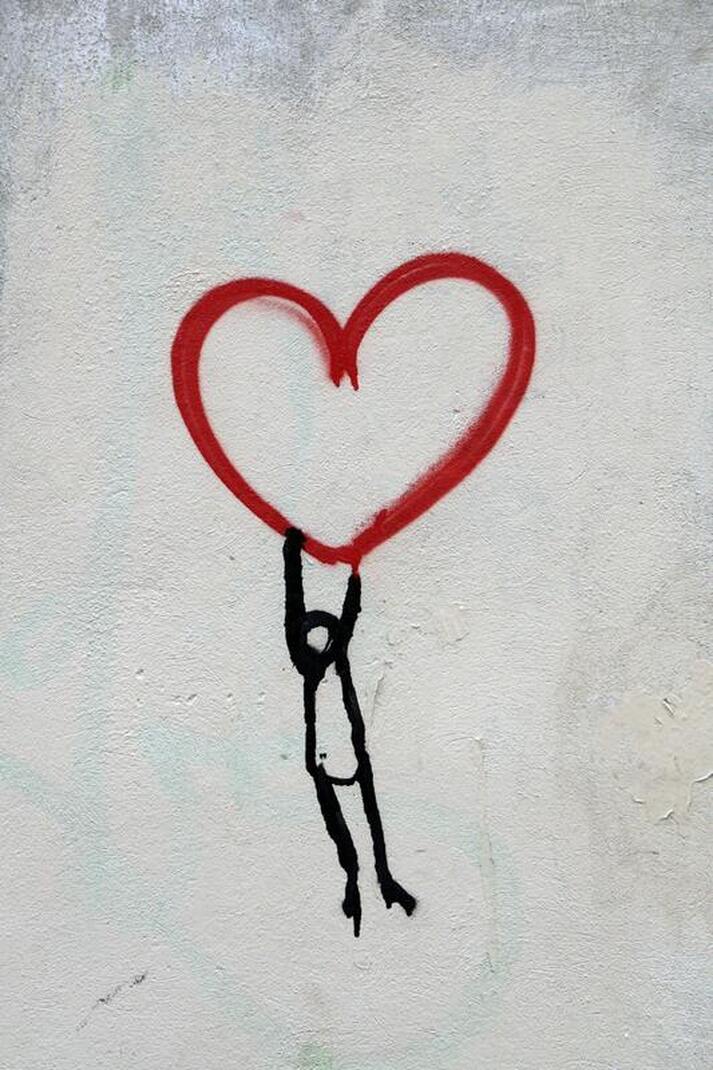
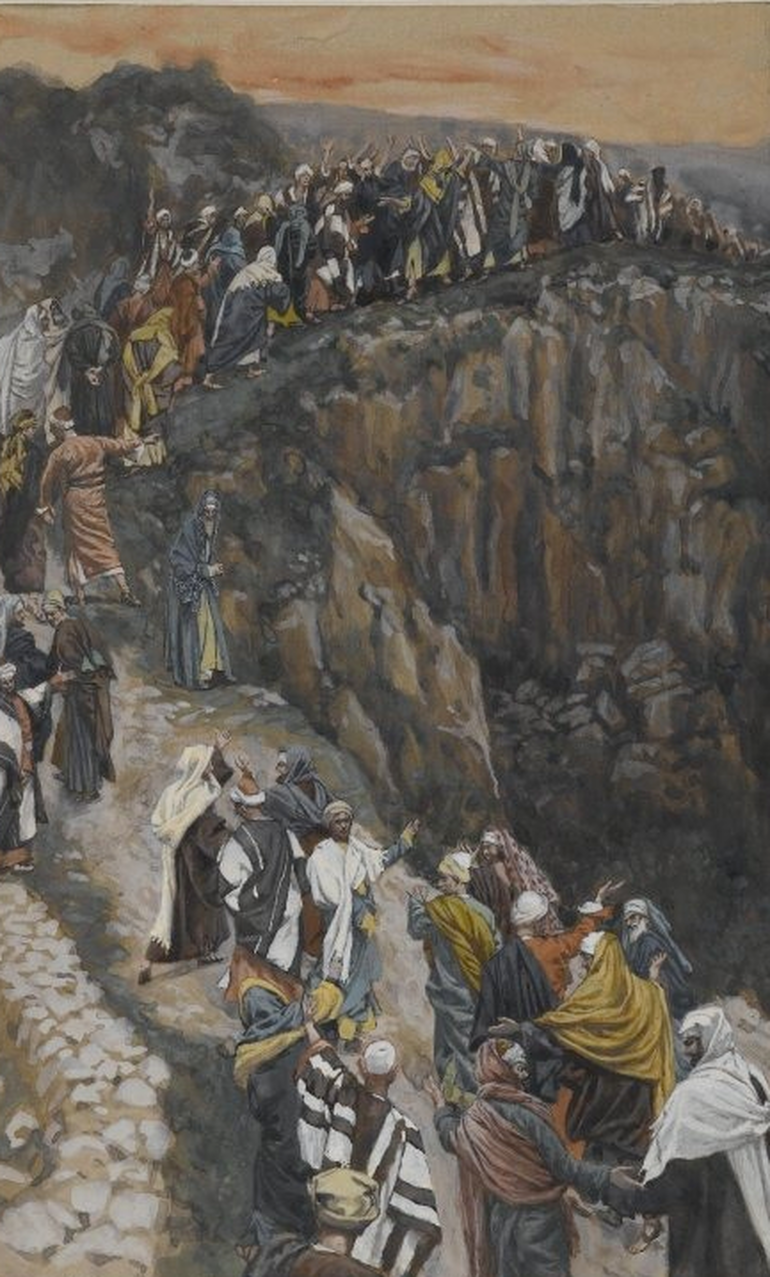

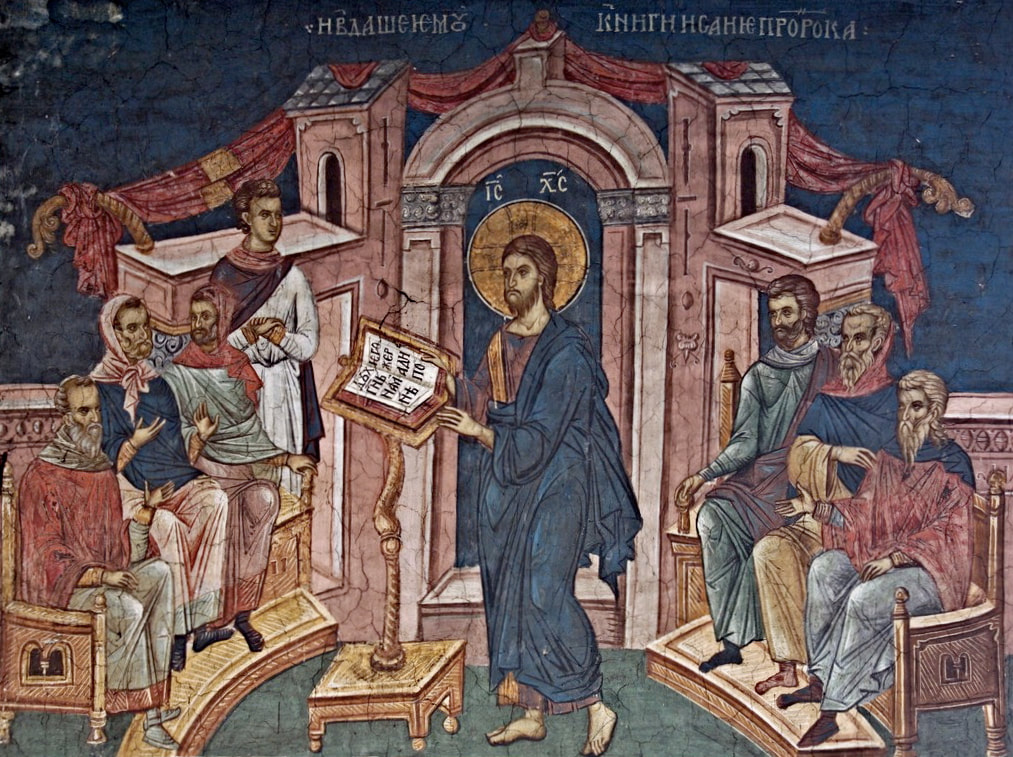

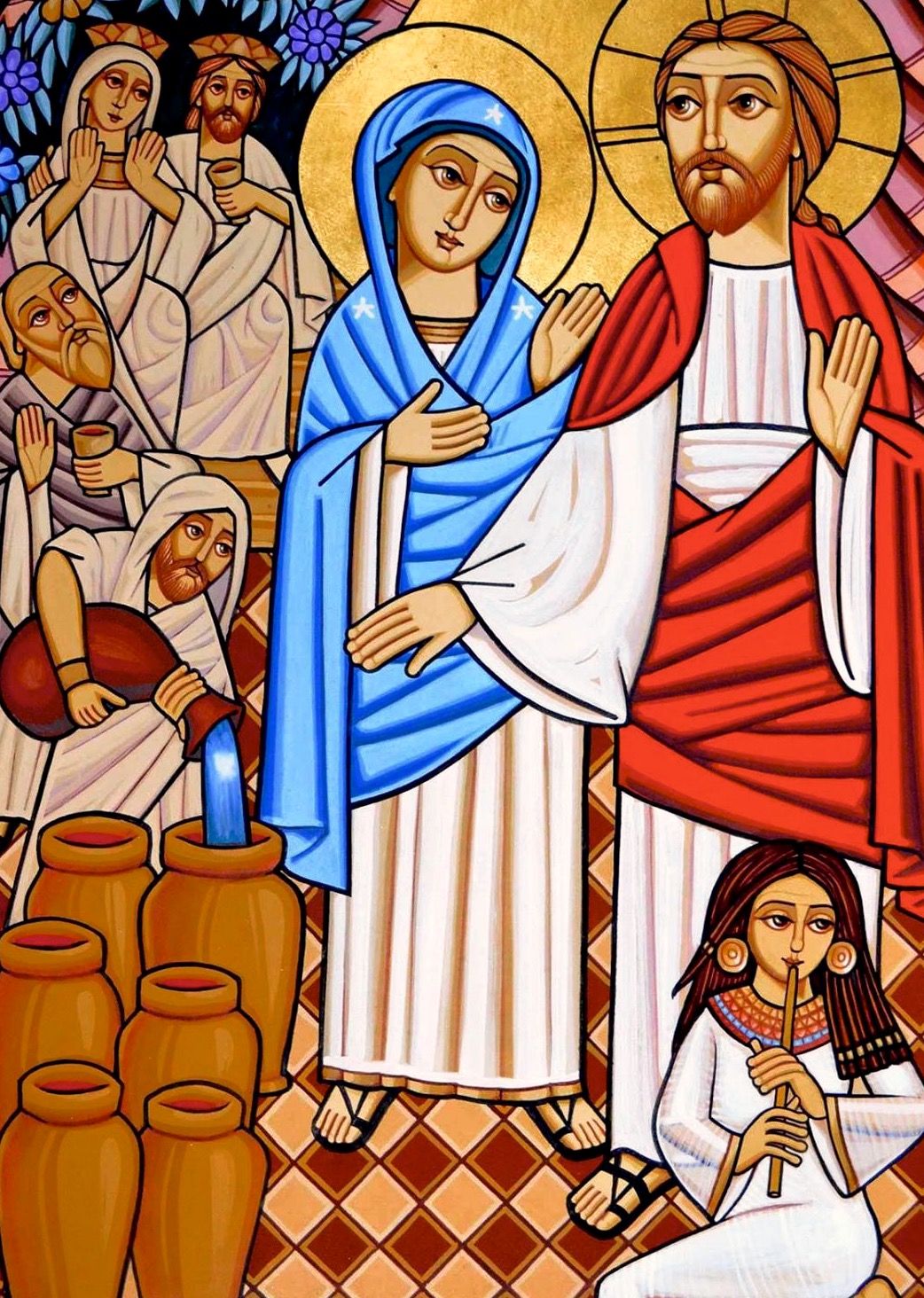

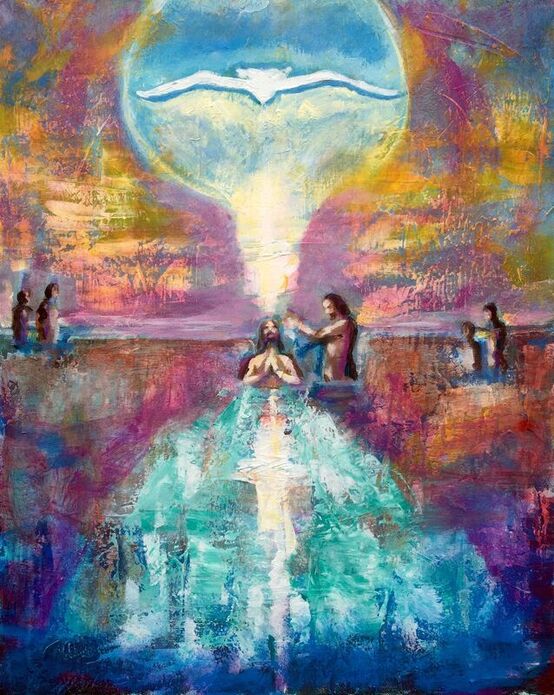

 RSS Feed
RSS Feed
